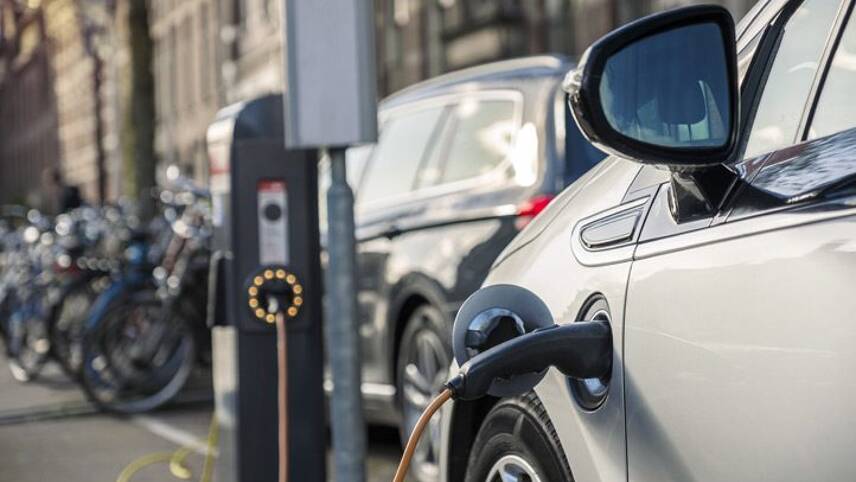Register for free and continue reading
Join our growing army of changemakers and get unlimited access to our premium content

By 2050, the UK’s public charging demand is expected to triple
The new edition of the IEA’s annual Global Electric Vehicle Outlook, published today (26 April) has found that 10 million EVs were sold globally in 2022. This accounts for cars, rather than vans and other forms of EVs.
The EV market is set to grow even more in 2023, the report states, growing by another 35% to more than 14 million vehicles. As such, EVs are estimated to account for 18% of the total car market by the end of the year, up from 14% in 2022 and 4% in 2020.
“Electric vehicles are one of the driving forces in the new global energy economy that is rapidly emerging – and they are bringing about a historic transformation of the car manufacturing industry worldwide,” IEA’s executive director Fatih Birol said.
“The trends we are witnessing have significant implications for global oil demand. The internal combustion engine has gone unrivaled for over a century, but electric vehicles are changing the status quo. By 2030, they will avoid the need for at least five million barrels a day of oil. Cars are just the first wave: electric buses and trucks will follow soon.”
Market concentration
The IEA report showcases that EV sales are concentrated in three large markets – China, Europe and the US. China accounted for 60% of global EV sales in 2022 and, to date, more than 50% of all EVs on the road globally are located in China.
Europe and the US have seen EV growth increase by 15% and 55% respectively in 2022. The two regions will see EV markets boosted by the EU’s Fit for 55 package and the US’s Inflation Reduction Act. By 230, the IEA estimates that the average share of electric cars in total sales across China, the EU and the United States is set to rise to around 60%.
Countries such as India and Indonesia also experienced a boon in EV sales last year, although sales are growing from low base levels. In India, a $3.2bn incentive programme has already attracted upwards of $8.3bn in investments, which in turn will spur battery manufacturing and EV rollout substantially in the coming years.
On the topic of battery manufacturing, the IEA report notes that current, approved and planned battery manufacturing projects would meet the demand for all EVs up to 2030, as listed under the IEA’s Net Zero Emissions by 2050 Scenario.
China is currently the world leader in battery and component trade and has increased its share of EV exports to more than 35%. The EU’s Net Zero Industry Act could rival this growth, as it aims for nearly 90% of annual battery demand to be met by domestic battery manufacturers.
Corporate growth
Separate research also notes that corporates are accelerating EV investment plans, to help spur wider demand.
The Climate Group this year confirmed significant growth in its EV initiative for businesses, with members now operating more than 400,000 EVs across the world – 93% more than they did 12 months ago.
At present, most of the EVs deployed are concentrated in Europe, which represents eight of the top 10 markets for deployment. The UK hosts more than 15,000 EVs deployed under EV100, while France hosts more than 8,800. For context, around 2,400 EV100 EVs are operating in Japan and 1,400 in the USA.
However, some researchers suggest that, even as the EV market grows, nations will need to disincentivise road transport if net-zero targets are to be met.
In the UK, for example, the Green Alliance’s Moving On report has found that the Government could reduce transport emissions by introducing new legislative targets that reduce car usage through driving charges that could then spur investment into better public transport access and routes.
The Green Alliance claims that, at the current pace, annual car mileage in the UK will rise by 17% to 300 billion miles by 2050, keeping its place as the highest polluting sector in the UK.
To change this course, the research claims that legislative charges on driving mileage, while also reducing road speed, reducing the cost of buses by 15%, rail fares by 5%, and increasing cycling by 20% could all contribute to a 25% cut in emissions.


World-wide recovery of the scarce elements, essential for battery manufacture does not seem to be in place.
Are there any moves, internationally, to improve this situation?
Because when they are gone; they are gone!
No response to Q1, so lets have Q2!
Are there any plans on the part of the electricity generators to work with the ev manufacturers to put generation in place for the anticipated rise in demand to power for all these evs?